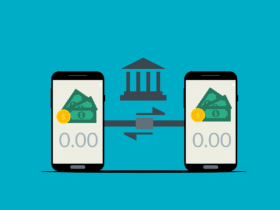You’ve probably heard about open source projects, but have you considered the unexpected advantages of contributing to them? While enhancing your coding skills is an obvious benefit, there’s much more to gain than meets the eye.
From expanding your professional network to enhancing your career prospects, open source involvement can be a game-changer in ways you might not have envisioned.
As the software industry continues to evolve, these hidden benefits could give you a significant edge in your professional journey.
So, what are these surprising perks, and how can they revolutionize your career path?
1. Skill Enhancement
Open source contributions offer developers a powerful way to boost their skills and expand their programming knowledge. You’ll work with different types of code, learn good coding practices, and get better at using new technologies.
By working with skilled developers from around the world, you’ll improve how you solve problems and write better code. You’ll also get better at talking to others, working in teams, and managing projects – all important skills for your job.
When you contribute to open source projects, you dive into real-world code. This hands-on experience is invaluable.
You’ll see how experienced developers structure their code and solve complex problems. This exposure helps you learn faster than just reading books or watching tutorials.
Working with a global community of developers pushes you to communicate clearly. You’ll learn to explain your ideas, ask good questions, and give helpful feedback. These skills are crucial in any professional setting, not just in coding.
Open source projects often use the latest technologies. By contributing, you’ll stay up-to-date with new tools and methods. This knowledge keeps your skills fresh and makes you more valuable to employers.
Collaboration in open source teaches you how to work effectively in a team. You’ll learn how to review others’ code, accept feedback on your work, and make decisions as a group. These experiences prepare you for leadership roles in your career.
2. Building a Portfolio

Open source contributions are an effective way to build your professional portfolio as a developer. When you work on these projects, you create tangible proof of your abilities.
Your code becomes publicly available, allowing potential employers to see your skills firsthand. They can review how you solve problems, write quality code, and collaborate with others.
This visibility in the open source community can significantly boost your credibility. Employers often value candidates who’ve actively contributed to real-world projects.
It shows that you can work in a team environment and handle real coding challenges. Your GitHub profile, for example, becomes a showcase of your work and progress over time.
To start building your portfolio through open source, look for projects that align with your interests and skills. Begin with small contributions, such as fixing bugs or improving documentation.
As you gain confidence, you can take on larger tasks or even propose new features. Each contribution adds to your experience and demonstrates your growth as a developer.
Remember to document your contributions clearly. Explain what you did and why it was important for the project. This helps others understand your thought process and problem-solving approach. Over time, you’ll build a diverse portfolio that highlights different aspects of your coding abilities.
3. Networking Opportunities
Open source projects connect you with developers worldwide. You’ll work together to solve problems and share ideas.
This teamwork can lead to job offers, mentors, and chances to speak at tech events. You’ll also learn different coding styles and methods, which makes you more flexible as a developer.
These projects help you build a strong network in the tech world. You’ll meet people from many countries and backgrounds. This diversity can teach you new ways to approach coding challenges. It also helps you understand how different teams work.
Working on open source projects shows potential employers your skills. They can see your code and how you work with others. This real-world experience is valuable when looking for a job. It proves you can handle actual coding tasks and collaborate effectively.
You’ll also learn how to communicate technical ideas clearly. This skill is crucial in the tech industry.
As you explain your work to others, you’ll get better at discussing complex topics. This ability can help you in job interviews and when working on team projects.
Open source contributions can open doors to new opportunities. You might find a company you want to work for through these projects.
Or you could discover a new area of technology that interests you. The connections you make can guide your career in unexpected and exciting directions.
4. Personal Satisfaction and Recognition

Open source projects offer personal satisfaction and recognition, boosting your sense of achievement and visibility in the developer community.
You’ll feel fulfilled by contributing to larger initiatives while gaining acknowledgment for your skills and efforts.
This involvement builds pride as you solve real-world problems and witness your code being used globally. Your confidence grows through peer recognition, and you experience the thrill of influencing industry standards.
Working on open source projects allows you to develop and showcase your skills publicly. This exposure can lead to new opportunities and connections within the tech industry.
As you collaborate with other developers, you’ll learn from their expertise and gain valuable insights into different coding practices and problem-solving approaches.
The process of contributing to open source also hones your communication skills. You’ll learn to articulate your ideas clearly, provide constructive feedback, and work effectively in a team environment.
These soft skills are highly valued in the professional world and can significantly enhance your career prospects.
Moreover, open source participation often involves mentoring others, which can be incredibly rewarding.
By helping newcomers navigate the project and understand complex concepts, you reinforce your own knowledge and develop leadership skills. This mentorship experience can be a stepping stone to more senior roles in your career.
5. Learning Best Practices
Open source projects teach you valuable skills and best practices used in the software industry. You’ll learn how to use version control systems, which help track changes in your code over time.
These projects also introduce you to code review processes, where other developers check your work and offer feedback. This helps improve the quality of your code and teaches you how to collaborate effectively.
Working on open source projects exposes you to professional documentation standards. You’ll learn how to write clear, helpful documentation that others can easily understand and use. This skill is crucial in any software development role.
You’ll also gain experience with project management tools and techniques. Many open source projects use issue trackers and project boards to organize tasks and track progress. This hands-on experience will help you understand how to manage larger software projects efficiently.
Open source participation often involves continuous integration practices. These are automated processes that check your code for errors and run tests every time you make changes.
These practices will help you catch problems early and ensure your code works as expected.
Lastly, you’ll likely encounter test-driven development in open source projects. This approach involves writing tests for your code before you actually write the code itself.
It helps ensure your software works correctly and makes it easier to maintain over time.
6. Giving Back to the Community

Contributing to open source projects benefits the community that has supported your development as a programmer. You help improve software used by many people around the world.
Your contributions can include writing code, creating documentation, reporting bugs, or mentoring new developers.
When you share your knowledge, you empower others to learn and grow. Your work can have a lasting impact on the global software community, fostering innovation in technology.
This involvement builds a sense of belonging and can inspire new programmers to join the field.
To get started, choose a project that interests you and matches your skills. Read the project’s contribution guidelines to understand how to submit your work.
Start with small tasks to familiarize yourself with the project’s structure and processes. As you gain confidence, take on larger challenges.
Remember that even non-coding contributions are valuable. Improving documentation helps users and other developers understand the software better.
Reporting bugs with clear, detailed information assists maintainers in fixing issues quickly. Answering questions in forums or chat channels supports the community and helps you deepen your own understanding.


















